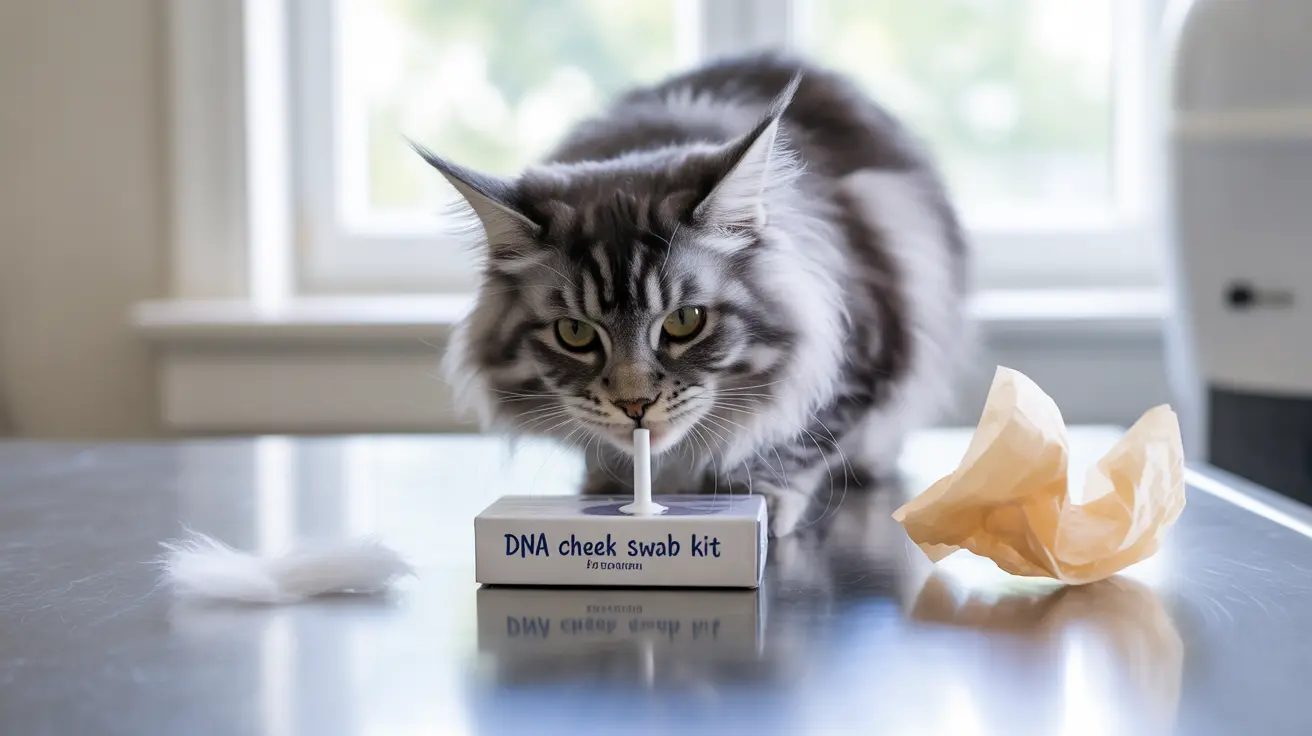Introduction
Pet genetic testing has revolutionized how we understand and care for our animal companions. This innovative approach to veterinary medicine allows pet owners and veterinarians to uncover critical information about an animal's breed composition, ancestry, and potential health risks through DNA analysis. Using simple collection methods like cheek swabs or blood samples, laboratories can now provide detailed insights into genetic markers that influence both health and behavior.
Modern pet DNA testing has become increasingly sophisticated, offering comprehensive screening for hundreds of genetic variants and inherited conditions. This advancement has transformed how we approach preventive care, breeding programs, and personalized treatment plans for our beloved pets. Whether you're a curious pet owner, responsible breeder, or veterinary professional, understanding the capabilities and benefits of genetic testing can help you make informed decisions about your pet's health journey.
What Is Pet Genetic Testing?
Pet genetic testing involves analyzing your animal's DNA to create a detailed genetic profile that reveals inherited traits, potential health risks, and ancestral information. Using state-of-the-art veterinary DNA test methods, specialists examine specific genetic markers to identify key details, such as:
- Breed composition and ancestry details
- Genetic mutations linked to hereditary conditions
- Behavioral predispositions and traits
- Potential health risks and carrier status
By deciphering this genetic information, pet owners gain a deeper understanding of their pets, allowing for targeted healthcare decisions and fostering a stronger bond through knowledge-based care.
Benefits of Genetic Screening for Pets
Early Disease Detection and Prevention
One of the primary advantages of pet health DNA analysis is the ability to identify potential health issues before they manifest. This early warning system allows veterinarians and pet owners to implement preventive measures and monitoring protocols tailored to specific genetic risks. Detecting a disease predisposition early on can lead to lifestyle modifications, closer follow-up, and sometimes even preemptive treatments, all of which contribute to better long-term health outcomes.
Personalized Care Planning
Understanding your pet's genetic profile enables the development of truly personalized care strategies. From dietary recommendations to exercise plans and specific health monitoring, pet genetic testing helps create customized wellness programs that address individual genetic predispositions. Personalized plans enable owners to proactively manage their pets' health, optimize their quality of life, and possibly extend their lifespans.
When to Consider Pet Genetic Testing
For New Pet Owners
Pet breed identification testing is particularly valuable when adopting mixed-breed animals. Understanding your pet's genetic background can provide insights into potential behavioral traits and health considerations specific to their breed mix. This knowledge allows new owners to anticipate their pet's needs, address breed-specific concerns, and provide an enriched environment suited to those characteristics.
For Breeding Programs
Professional breeders rely on dog genetic testing and feline genetic testing to make informed breeding decisions. These tests help identify carriers of hereditary conditions in pets, allowing breeders to make responsible pairing choices that minimize the risk of genetic disorders in animals. By carefully managing genetic diversity and health status, breeders can work toward establishing healthier bloodlines and contributing to responsible animal husbandry.
Common Conditions Detected Through Testing
Physical Health Conditions
- Hip dysplasia
- Heart diseases
- Progressive retinal atrophy
- Von Willebrand's disease
- Polycystic kidney disease
These are among the most commonly recognized inherited conditions that genetic testing can reveal. Early identification of such conditions allows for targeted medical management and surveillance, potentially slowing disease progression and improving quality of life.
Genetic Mutations and Disorders
Pet diagnostic DNA testing can identify various genetic mutations in pets that may lead to health issues. Early detection of these mutations allows for proactive management and improved outcomes. In many instances, knowing a pet is a carrier of a specific genetic disorder can inform breeding decisions and enable monitoring strategies to reduce the risk of disease appearance in future generations.
The Testing Process
Sample Collection
Most pet wellness screening starts with a simple, non-invasive cheek swab or small blood sample. The process is quick and causes minimal discomfort to your pet. Owners are often guided through the collection process, which is convenient, safe, and suitable for pets of all ages.
Laboratory Analysis
Specialized laboratories analyze the collected DNA using advanced genetic screening for pets techniques. They examine specific markers associated with breed identification, health conditions, and genetic traits. Highly sensitive equipment ensures accuracy and broad detection capabilities so that the results are reliable and actionable.
Making Informed Decisions
For pets at genetic risk, regular monitoring and preventive care become crucial. Pet preventative testing results can guide decisions about ongoing pet care, tailoring daily routines and veterinary visits to address each animal's unique genetic profile. Results from genetic testing may influence decisions about:
- Frequency of veterinary check-ups
- Dietary requirements
- Exercise recommendations
- Environmental modifications
By integrating these insights into overall pet management, owners can better support their pets' health and wellbeing throughout their lives.
Frequently Asked Questions
- What is genetic testing for pets? It's a DNA-based analysis to identify breed, ancestry, and inherited disease risks in pets.
- When should a pet undergo genetic testing? Testing is helpful before breeding, after unexplained health issues, or for proactive health screening.
- What conditions can genetic tests detect in pets? They can reveal inherited diseases, genetic mutations, and predispositions to health issues.
- Can pet genetic testing predict future illnesses? It can highlight increased genetic risk, but not guarantee if or when a disease will develop.
- Is genetic testing painful for pets? No, it's usually a simple cheek swab or blood sample with minimal discomfort.
- Are genetic tests only for purebred animals? No, both purebred and mixed-breed pets can benefit from genetic testing.
- Does genetic testing replace regular veterinary care? No, it's a supplementary tool that enhances but doesn't replace regular check-ups.
- How long does it take to get pet genetic test results? Most results are available within 2-6 weeks, depending on the provider.
- How accurate are pet genetic tests? They are generally reliable, especially when performed by reputable labs.
- Can test results help in planning pet care? Yes, results inform personalized care, preventive treatments, and lifestyle adjustments.
- Are genetic tests expensive for pets? Costs vary widely; basic panels are affordable, but advanced tests may be pricier.
Conclusion
Pet genetic testing represents a powerful tool in modern veterinary medicine, offering insights that can significantly impact an animal's quality of life. While not necessary for every pet, it provides valuable information for those seeking to understand their companion's health predispositions and make informed care decisions. As technology advances, these tests continue to become more comprehensive and accessible, making them an increasingly valuable resource for pet health management. By embracing the possibilities offered through genetic testing, pet owners and professionals can work together to ensure healthier, happier lives for animals everywhere.






